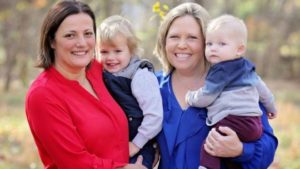Catholic Charities of Buffalo will end its foster care and adoption program because state rules that bar discrimination based on sexual orientation conflict with church teachings, officials from the organization said Thursday.
“We’re a Catholic organization, so we have to practice what we do consistent with the teaching of the church,” Dennis C. Walczyk, the chief executive officer of Catholic Charities, told The News.
A same-sex couple recently applied to the agency to become adoptive foster parents, and that precipitated the agency’s decision, Walczyk said.
The agency has a contract with the Erie County Department of Social Services that expires in March. The state Office of Children and Family Services licenses Catholic Charities and other providers of these services.
The state requires contracting organizations to allow same-sex couples to adopt or to raise foster children. That directive, however, goes against the church’s position that marriage is between a man and a woman, the Catholic Charities officials said.
Given that tension, the agency made the decision to phase out the foster care and adoption program.
“It is with deep sadness we acknowledge that the legacy of the high quality, exceptional services which our staff provides to children and families through foster care and adoption will be lost,” Walczyk said in a statement formally announcing the end of the services. “We are working with the state OCFS and Erie County DSS to support a smooth transition for children in foster care and foster parents, as well as those who have submitted applications to provide foster care or seek adoption.”
Catholic Charities said the program currently has 55 certified foster homes, with 34 children in care in 24 of those homes.
“They will stay with their parents,” Walczyk said of the children currently placed through Catholic Charities. “They will stay in their homes.”
But eventually they will be under the auspices of another agency.
August 23, 2018,
BuffaloNews.com
Click here to read that entire article.
The post Catholic Charities ending foster, adoption programs over same-sex marriage rule appeared first on Time For Families.
Source: Time for Families














